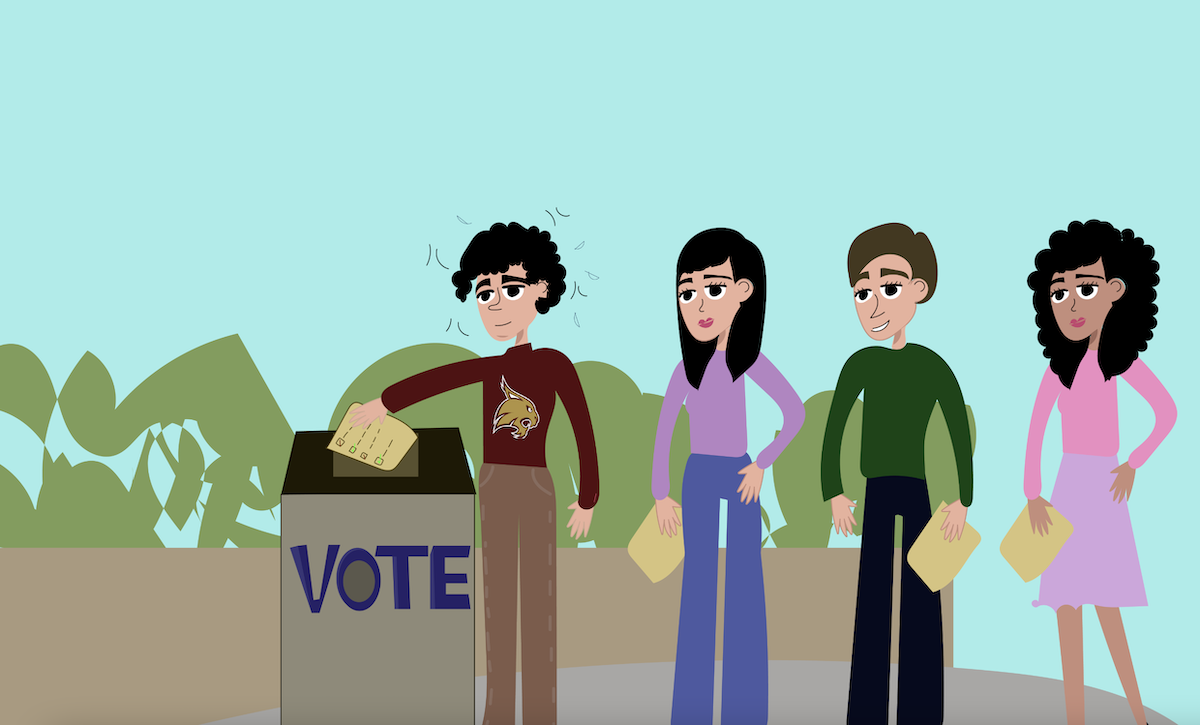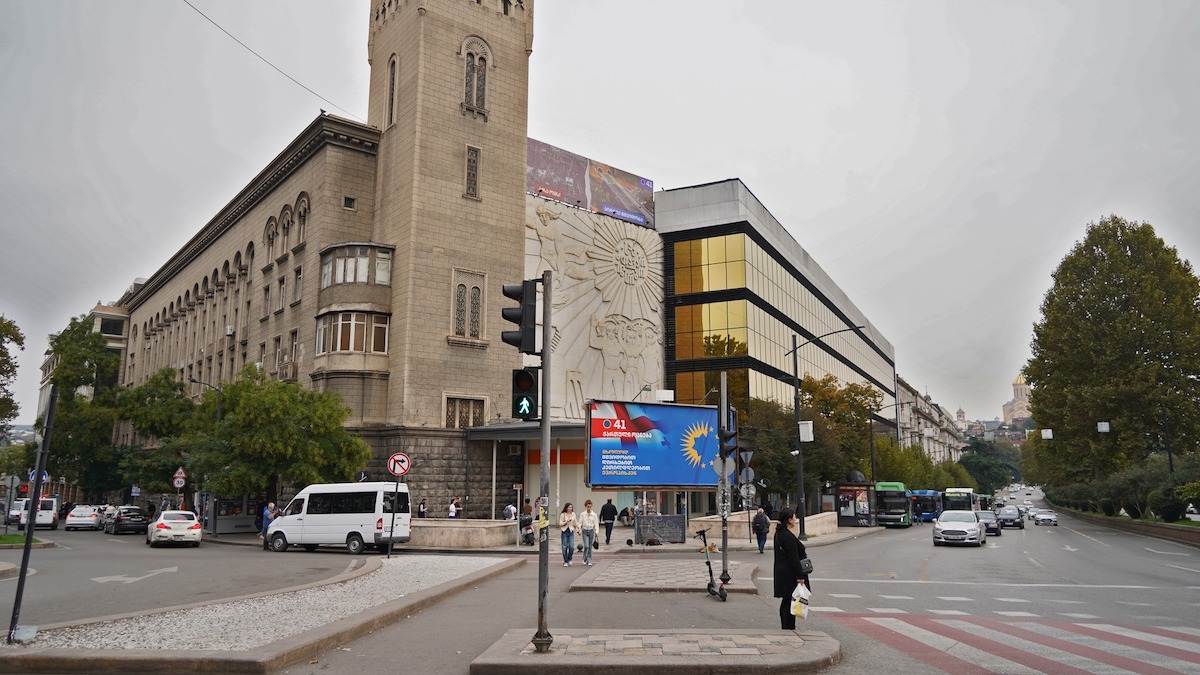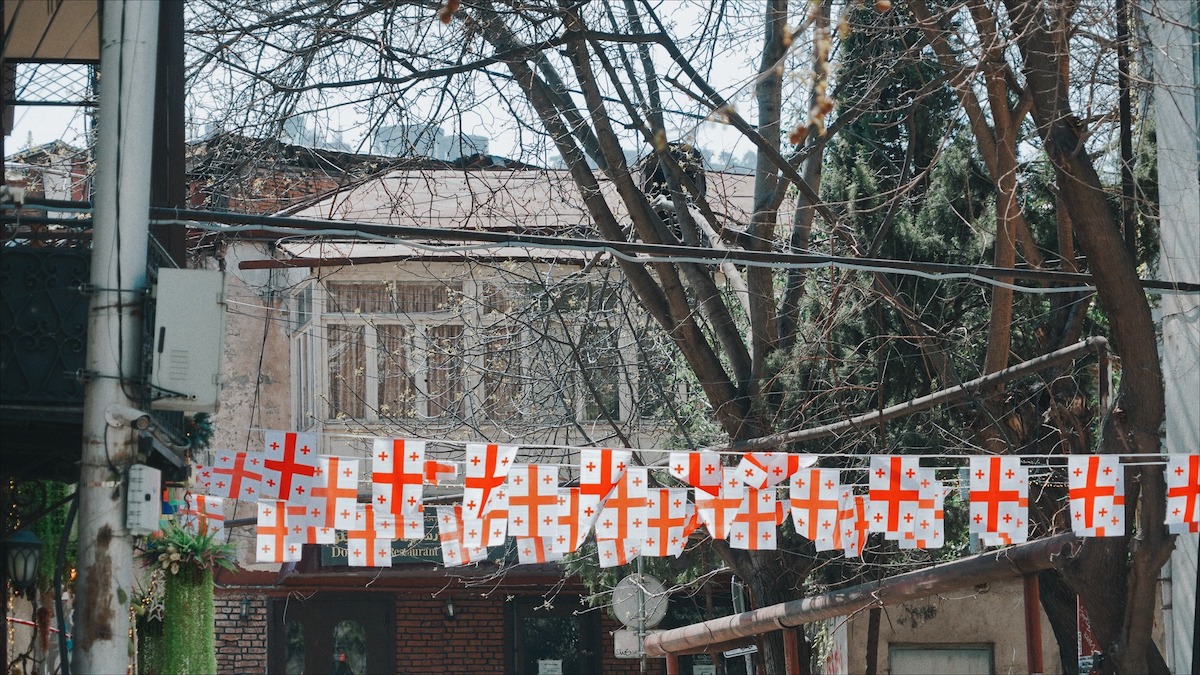"I don’t trust this government:" Independent observers prepare for elections in Georgia
Observers at the October 26 Election
Independent observers are set to be present at all polling stations during the upcoming parliamentary elections in Georgia on October 26, both domestically and abroad. Initiated by non-governmental organizations, a new civic campaign has emerged alongside experienced monitoring missions, involving trained volunteers from diverse professions, ages, and interests.
Students and scholars, singers and actors, writers, immigrants, homemakers, and many others are getting involved. This unprecedented mobilization has been declared by civil society in response to low public trust in the government and the expectation that the ruling party, “Georgian Dream,” may attempt to falsify election results. Observers are seen as a key mechanism to protect the parliamentary elections from potential fraud.
For 18-year-old Salome Kenchiashvili, this will be her first election in which she is eligible to vote. Salome was an active participant in protests against the “foreign agents” law and feels compelled to defend her and her fellow voters’ choices. This is why she has decided to become an observer.
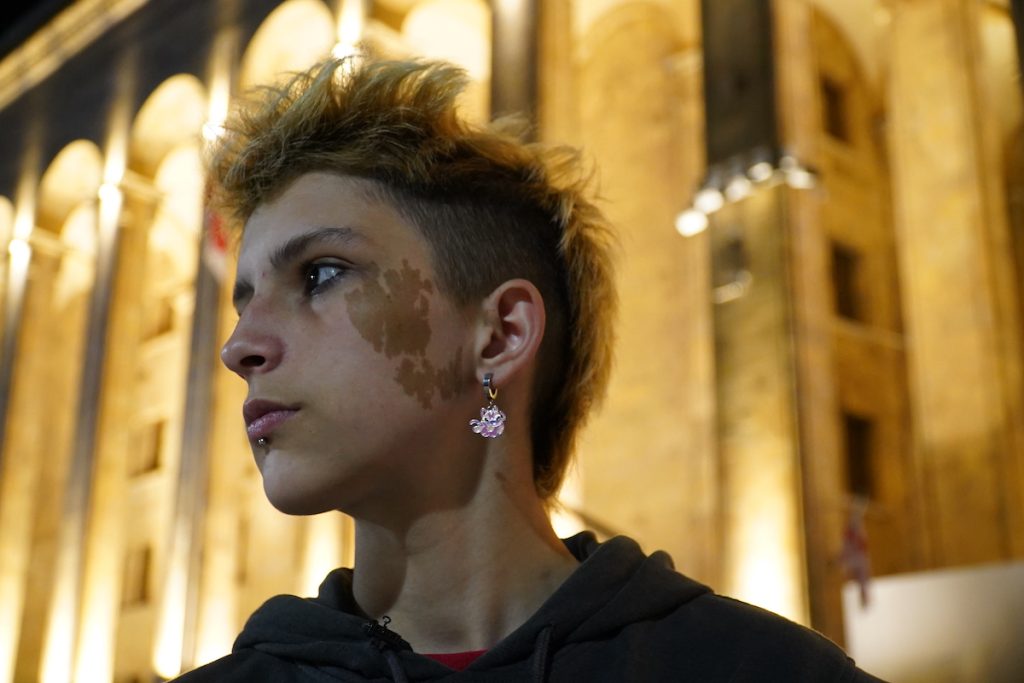
“I don’t trust this government. I know there will be fraud, and we will do everything possible to prevent it,” says Salome.
To observe the voting process and vote counting on October 26, Salome connected with a group called “Observation,” created by civic activists. She registered and completed a series of training sessions to prepare for her new mission.
“I never imagined I would participate in the elections like this, that I would be so involved in it all. For the past two months, I’ve dedicated all my time to this, working hard to learn and gain experience.”
Many other Georgian citizens have made similar decisions. The exact number of observers will be announced a few days before the elections, but relevant organizations report that volunteers number in the thousands.
“I have been observing elections since 2006, and I don’t remember such unprecedented volunteer participation, with people not only ready to vote and protect their own voices but also to safeguard the votes of other citizens,” says lawyer Irma Pavliashvili.
The Tradition of Election Fraud in Georgia
Before almost every election in Georgia, the opposition and civil society call for “vote protection.” Fraud and the manipulation of election results by the government have remained pressing issues for many years.
This is why it is particularly noteworthy that in 2012, power changed hands through elections in the country—a first in Georgia’s independence. Previously, governments were replaced either by military coups or peaceful revolutions.
The first multi-party elections since 1919 were held in Georgia on October 28, 1990, even before the collapse of the Soviet Union. This decision came from an already weakened Communist Party in the face of a strengthening national movement and growing pressure from it.
At that time, the communists suffered a significant defeat.
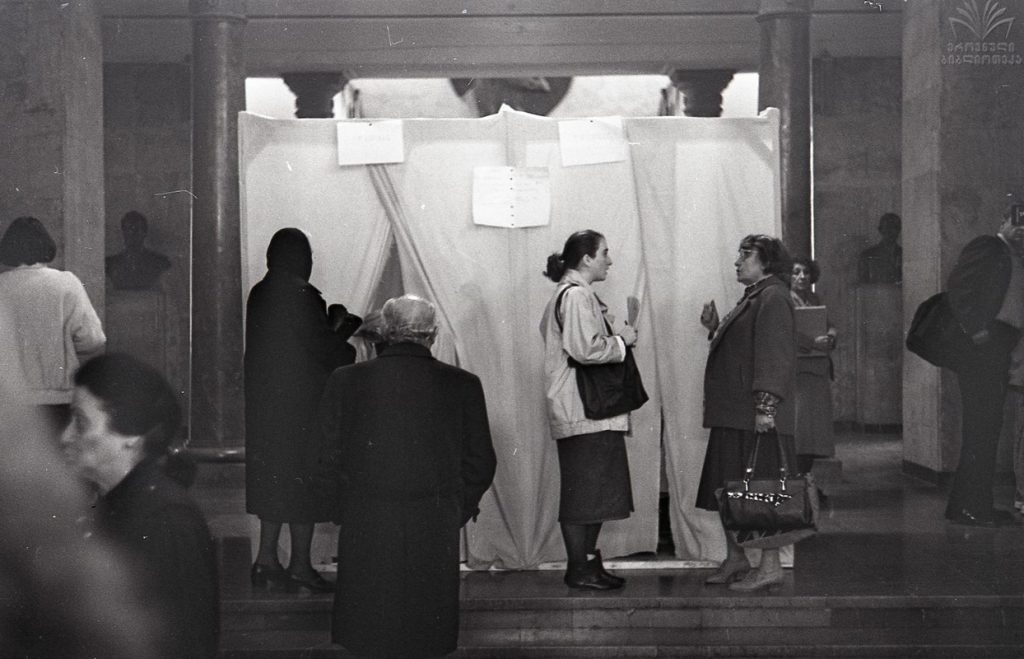
“The communists were unaware of election fraud methods simply because elections were rarely held during the Soviet era,” says former parliament member David Zurabishvili.
He describes election fraud in Georgia as a “product” of the late 1990s:
“During the era of Eduard Shevardnadze, the second president of Georgia, quite severe forms of fraud were employed, including mass ballot stuffing and the hijacking of ballot boxes, as well as ‘carousel’ voting, where one person votes multiple times at different stations. Intimidation, bribery, and threats against voters were all part of the landscape at that time.“
One of the most significant political changes in modern Georgian history, the “Rose Revolution,” was sparked by election fraud: the results of the parliamentary elections on November 2, 2003, were clearly falsified by the unpopular Shevardnadze government, prompting opposition leaders and citizens to take to the streets.
Former parliament member Khatuna Gogoreshvili, who represented the “United Democrats” electoral bloc at the Central Election Commission (CEC), witnessed “carousel” voting and other tactics used to manipulate the results.
An OSCE report at the time noted that the media and local observers from the Young Lawyers Association and the International Society for Fair Elections and Democracy (ISFED) played a crucial role in increasing transparency in the process. The data they collected formed the basis for legal complaints.
“It was the observers who brought these protocols that allowed us to file complaints… Otherwise, how would we have known what the actual voting results were in any given area, and what was recorded as the final result?” Gogoreshvili said.
As a result of the “Rose Revolution,” Mikheil Saakashvili and his party, the United National Movement, came to power in Georgia, winning elections with relative ease in the early years. However, the results of the early presidential elections in 2008 remain contentious. These elections were preceded by repression against the opposition and media, as well as a political crisis.
Official results indicated that Saakashvili won in the first round, although the opposition claimed the CEC’s data was fraudulent. The National Movement categorically denied these allegations.
Reports from local NGOs varied significantly, while the OSCE mission stated that the elections generally met democratic standards, although serious issues requiring urgent attention were identified.
“The government practically had to resort to methods from the 1990s to secure a first-round victory,” recalls David Zurabishvili, who represented the Republican Party at that time.
Zurabishvili believes that after 2008, the approach in Georgian electoral tradition shifted: in his observation, the government focused on achieving the desired outcome during the pre-election period rather than on the actual voting day.
“When protocols are reviewed at polling stations, it becomes quite noticeable. To ensure that international observers would more or less recognize the legitimacy of the elections and that the government would achieve its goals, the emphasis shifted to securing election results before the actual voting,” he explained.
Attempts to influence the election outcome during the pre-election period typically involve the use of administrative resources, detailed voter registration through coordinators, bribery, intimidation of citizens, and more.
For many years, non-governmental organizations have reported concerns about the use of these practices, though violations identified on election day remain a major issue.
“The primary tension and political temperature escalate during the vote counting process,” says Irma Pavliashvili.
She recalls the 2012 elections, in which the ruling party at the time, the National Movement, suffered a defeat.
According to Pavliashvili, “all the methods that can negatively affect election results were used,” including the intervention of special forces in the vote counting at some polling stations.
However, she emphasizes that many attempts at manipulation remained just that—attempts—while others had legal consequences due to the activity of observers: “For this reason, re-elections were held in several districts.“
Despite the attempts at fraud, several factors determined the outcome of the 2012 elections, the first being record-high voter turnout, with over 2.2 million people casting their ballots—61.3% of registered voters.
The work of observers and NGOs also played a significant role, as did the willingness of President Saakashvili and the National Movement to acknowledge their defeat and transfer power. This is still considered one of Mikheil Saakashvili’s key political achievements.
The System Remains
Although power changed hands in 2012 and the new ruling party, Georgian Dream, promised unprecedented democracy, many of the corrupt practices from previous elections persisted.
“If we observe the electoral cycle, we see that the degree of systemic violations increases as government approval ratings decline. When popularity falls, efforts by a party often focus on maintaining power,” explains Irma Pavliashvili.
During Georgian Dream’s tenure, the most “notable” elections were the presidential election in 2018 and the parliamentary election in 2020, both of which were followed by accusations of fraud and protests from the opposition. In 2020, this escalated to an opposition boycott of parliament and a political crisis.
Due to an insufficiently fair electoral system, the use of administrative resources in favor of the ruling party, inaccuracies in final protocols, and other factors, the Young Lawyers Association of Georgia labeled the 2020 elections as “the worst organized elections” under Georgian Dream.
Elections 2024: What to Watch For
In 2024, elections will primarily take place electronically, though civil society emphasizes that this does not mean manipulation risks are fully neutralized.
The pre-election environment this year markedly differs from previous elections under Georgian Dream.
Under a law enacted a few months ago regarding “foreign agents,” the government has labeled local NGOs, including monitoring organizations and critical media, as “serving the interests of foreign powers,” and their donors as “foreign forces.”
Georgian Dream has promised that if it secures a constitutional majority, it will ban opposition parties. Meanwhile, the Prime Minister “reminds” the public that they have not lost any elections in the past 12 years.
Amid this rhetoric, it appears that Georgian Dream is unwilling to relinquish power and will attempt various means to influence the election outcome. While such attempts have become more apparent in recent election cycles, the NGO sector believes observers should remain vigilant on election day.
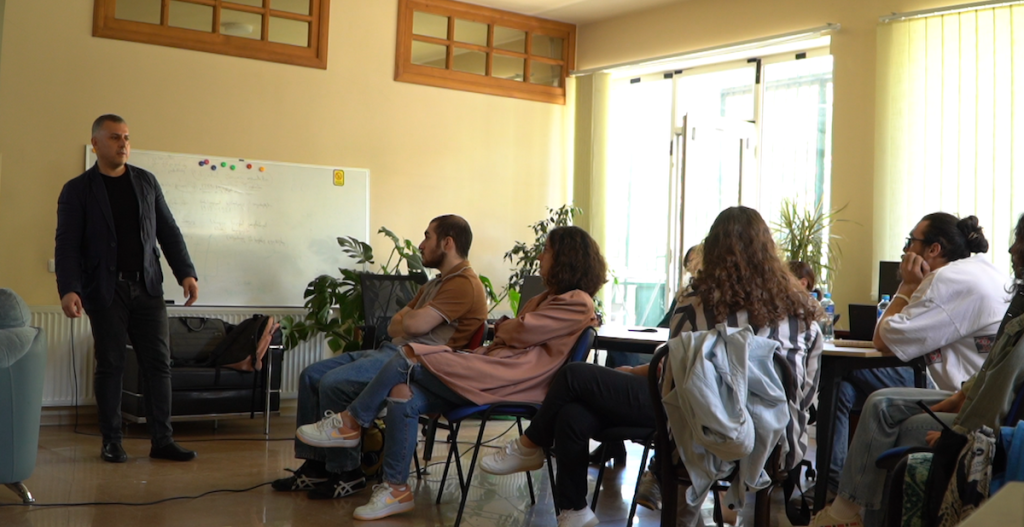
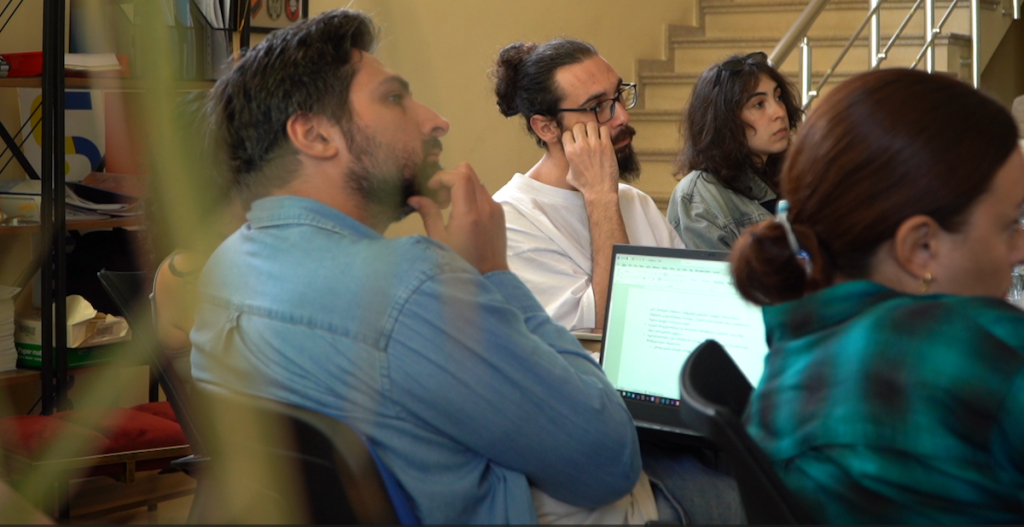
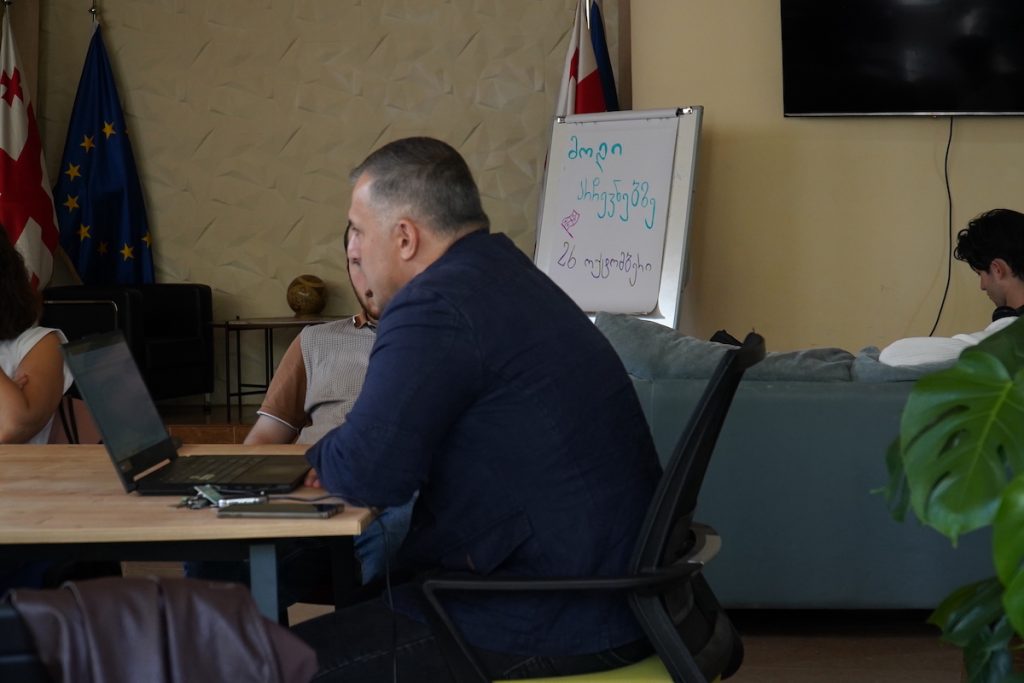
“Of course, this [electronic voting] doesn’t mean that manipulation will be impossible,” says ISFED lawyer Giorgi Moniava.
He is not alone in disputing the ruling party’s claims that the electronic model eliminates fraud. Tamta Kakhidze, an analyst with the international organization Transparency International, agrees:
“While the methods of fraud have become more complex, they are still possible if there isn’t an observer at the polling station who knows what to look for and pay attention to.“
Kakhidze outlines four main types of fraud that an observer can help prevent:
1. Voting with Someone Else’s ID Number
This method is applicable when a fraudster knows for certain that a specific voter will not show up on election day. In this case, the participant in the fraud registers in the system on behalf of that voter by entering their ID number.
“The observer should verify the data displayed on the verification device during voter registration. For instance, does the displayed photo match the person voting under that ID number?“
2. Voting with Someone Else’s Identification Document
In this scenario, “unreliable” voters are pressured or paid to temporarily surrender their ID, ensuring they cannot vote.
Instead, the fraudster takes the “confiscated” document to the polling station and votes on behalf of that voter.
Here, again, the observer must carefully monitor the registration process to ensure that the photo displayed on the screen matches the individual arriving to vote.
3. Tampering with Ballots
This can occur during the vote count. To be valid, a ballot must have only one circle filled in. A person involved in the fraud might secretly fill in another circle during the counting process to render the ballot invalid.
Therefore, the observer should ensure that no extraneous items—such as pens, markers, or pencils—are present on the counting table.
4. “Carousel” Voting
This traditional method involves a voter bringing a pre-filled ballot to the polling station and leaving with a blank one to pass along.
To prevent this, the observer should monitor the voting booth closely to see if the voter changes ballots. They should also watch for anyone photographing ballots, as this is often required by those pressuring or bribing voters.
“Unprecedented Mission”
On October 26, “Transparency International” will observe the elections alongside 29 other organizations under the coalition “My Voice,” which has pooled resources to train volunteer observers. According to the coalition, they received applications from 4,200 citizens, with about 2,000 set to monitor the elections across all electoral districts.
“I can say this mission will be unprecedented in scale,” declares Tamta Kakhidze.
The activist group “Observation” informed JAMnews that 300 citizens have undergone special training to serve as observers. An additional 300 will monitor the elections on behalf of the organization “Protect,” also formed by civic activists.
“Younger people are more engaged this year than ever before,” emphasizes ISFED Chair Nino Dolidze. ISFED will deploy around 1,500 observers both within districts and along the external perimeter, with mobile observation groups rotating between areas.
The Young Lawyers Association will have 600 observers, aiming to cover 1,500 districts through both static and mobile teams. Election logistics coordinator Giorgi Abuladze notes a heightened interest this year from citizens who have never observed elections before.
The deadline for organizations to submit their lists of observers was October 21, five days before the elections. Until the last moment, they encouraged citizens interested in participating to complete the necessary applications.
Salome Japiaashvili managed to submit her application and is now preparing for October 26.
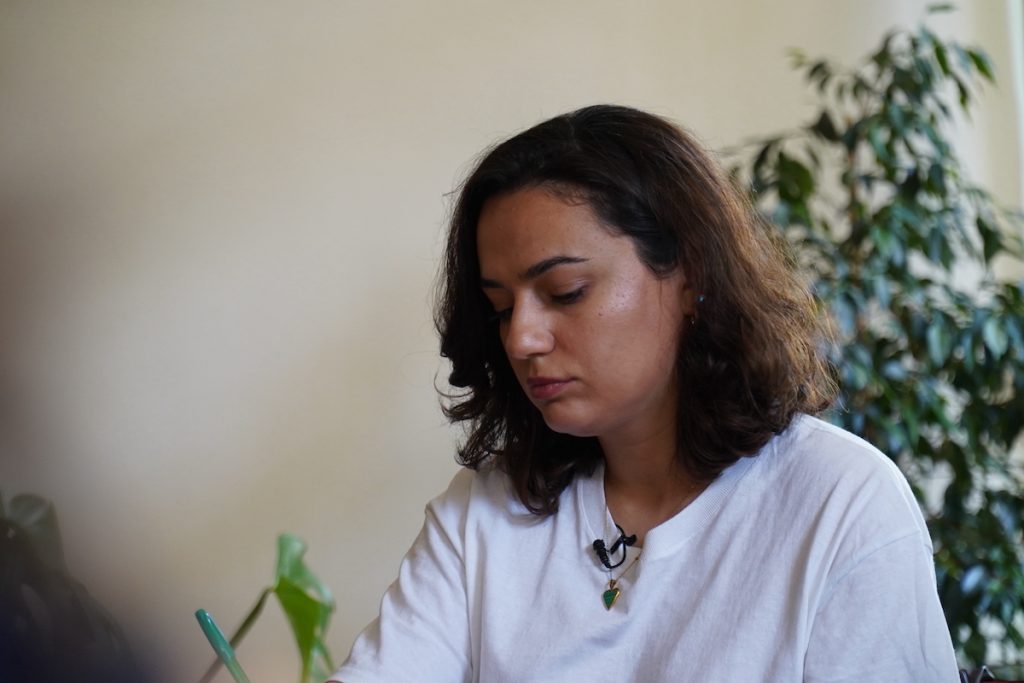
“When the ‘Russian law’ [the ‘foreign agents’ law] was enacted, I faced two choices: to despair and leave the country or to continue the fight for a dignified life in my homeland. I thought about what I could do to contribute to this and decided that my role could be to observe the elections and ensure the protection of our votes,” she explains.
Observers at the October 26 Election










